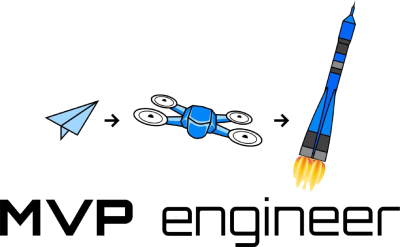
Finding the right fit for your engineering staff is important, and there's a few things to keep an eye out for on resumes to share here. Screening out bad fits is much more important than being sure to hire the perfect person. So screening out good candidates should be seen as a necessary mistake to ensure the wrong employees don't get hired.
Look for impact focused language. Quantification of movement due to the candidate's actions. "Oncall pages went down 80%" "Test coverage increased from 60 to 95%" "Margins improved by 10%" "Infrastructure is able to handle 1M users, up from 10k". This is a candidate that cares less about methods and technology interests, and more about company bottom line. Engineers are problem solvers, and you don't want someone in love with solving complex technical problems. You want someone in love with moving the needle and using tools to get there.
For most infrastructure or backend roles, an advanced degree is a red flag. Don't hire someone with a graduate degree for a dev ops role. If you're doing deep learning, tensor flow, or advanced algorithms that the candidate studied specifically, this is good. However, even as it might seem counter intuitive, you want to hire someone who has worked instead of gone to school (specifically for graduate school). Not only is the experience more relevant to the everyday work of your engineering org. But graduate school is a signal that the candidate wasn't able to get a job before the degree. They had to pay someone hundreds of thousands of dollars for experience and credentials, instead of getting paid hundreds of thousands of dollars to earn the experience. Bias towards academia and problem solving is also a possibility for these candidates.
Job hopping is a tricky one. You want to ensure the candidate has one or two experiences that have lasted two or more years. This is a good baseline to signal if your company provides a positive experience to the candidate, they will stay for long enough to make your investment worth it. Employees are wisening up to the disloyalty of companies, and recognize the best strategy is often to get promotions by switching companies, so you can't penalize obvious market pressures. It is advised to be even more lenient if your company is young.
Companies that have a proven track record of excellence are one of the best signals on a resume. Being employed by one of these companies for over 18 months is a very strong indication of a baseline of technical competence and social ability. Not only has the person passed the (likely more rigorous than yours) coding interview to join the company, but they worked through multiple performance review cycles and continued to contribute. An even stronger signal is a promotion at the company. This shows goal orientation, and ambition to company values. Big companies like Google, Amazon obviously fit this model, but smaller companies with good reputations should also be seen in this way, Stripe, Coinbase, or startups known to you personally that have high standards.
There's a lot to keep an eye out for when evaluating resumes and building your team. Reach out if you want some help applying some of these tips, or need some personalized suggestions.

